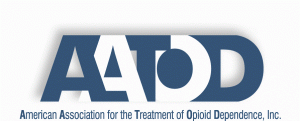Written by Lauren Siembab, CT SOTA and SOR Project Director
Delivering services to the people who need them most is the “driving” force behind one of CT’s newest initiatives, Mobile Medication Assisted Treatment. Funded by SAMHSA’s State Opioid Response grant (SOR) beginning in 2019, there are now five Mobile MAT vehicles making the rounds in twelve cities and towns Statewide. “MATT’s Van”, the State’s original mobile MAT vehicle, provided buprenorphine and peer support to seventy-five different individuals in the first six months of operation. Since its inception they have inducted over one hundred twenty-five individuals onto buprenorphine and provided peer support alone to at least twice that manyBuilding on the MAT + peer support model, the SOR grant also funded a Recreational Vehicle (RV) for the Greater Hartford Harm Reduction Coalition which combines syringe services with immediate access to peer support and MAT. This vehicle was especially welcomed (pre-COVID) parked outside of the Hartford Community Court to accommodate individuals that had been referred for services steps away by a public defender or a judge. This model utilizes immediate access arrangements with a local methadone clinic and buprenorphine prescriber. In the southern part of the State, covering Bridgeport and Stamford are two psychedelic vans, operated by Liberation Programs, that also combine syringe services with peer support as well as an on board DATA-waivered APRN that can prescribe buprenorphine. The bean bag chairs and coolers of bottled water inside the vans offer a comfortable spot for individuals to talk with the peer support specialist or be assessed by the nurse. Interestingly, many of the individuals utilizing the mobile MAT vans in Bridgeport and Stamford are choosing referrals and immediate access to methadone over buprenorphine. Finally, the newest van is operated by the McCall Center for Behavioral Health located in CT’s northwest city of Torrington. This van, like the others, recently received its outpatient clinical license from the Department of Public Health allowing them to bill Medicaid for some of the on-board clinical services as long as they are parked at the location identified on their license.
Whether they’re roaming “hot spot” areas in their communities or strategically parked, staff on these five vehicles are passionate about “meeting people where they’re at” with their recovery. Although we’re still working out some kinks and developing our promising practices, it’s clear that the consistent presence of these colorful vehicles with their friendly and compassionate staff is a welcome sight by many people throughout CT that can use a helping hand.






















